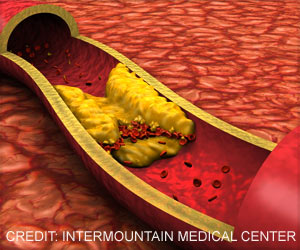A researcher at Florida State University College of Medicine has developed 'mutant' proteins that could pave the way for treatment of heart disease.
A researcher at Florida State University College of Medicine has developed 'mutant' proteins that could pave the way for treatment of heart disease.
Michael Blaber, a professor in the department of biomedical sciences, has been working on mutant forms of a human protein that could help the body grow new blood vessels for restoring blood flow in damaged areas of the heart.This study may provide data that will enable the use of the mutant proteins in new treatment methods previously unavailable for patients with advanced “no option’’ heart disease.
“This research offers the potential to treat people who currently are being sent home to die. We’ve tested a group of mutants in the laboratory with unusual properties of increased stability and activities -- good properties. In some cases it was unexpected, but the results are very promising,’’ said Blaber.
The new approach to the problem is called therapeutic coronary angiogenesis, which is creating hope through the injection of human fibroblast growth factor protein into affected areas. Use of mutant forms with increased stability may lead to improvements with the procedure.
The researchers are creating artificial “mutant’’ proteins in laboratory that mimic the human proteins used in angiogenic therapy, and with enhanced stability properties.
Usually, obstructed blood vessels and clogged or blocked arteries are treated through angioplasty, the mechanical widening of a vessel, or bypass surgery. However, there are those patients who have numerous small blockages and cannot be treated through traditional approaches. And mostly, they are sent home with a predicted life expectancy.
Advertisement
The discovery has huge potential in commercial applications and already has drawn the attention of private companies interested in the results Blaber’s lab has achieved and the intellectual properties his studies are generating.
Advertisement
SRM/L










